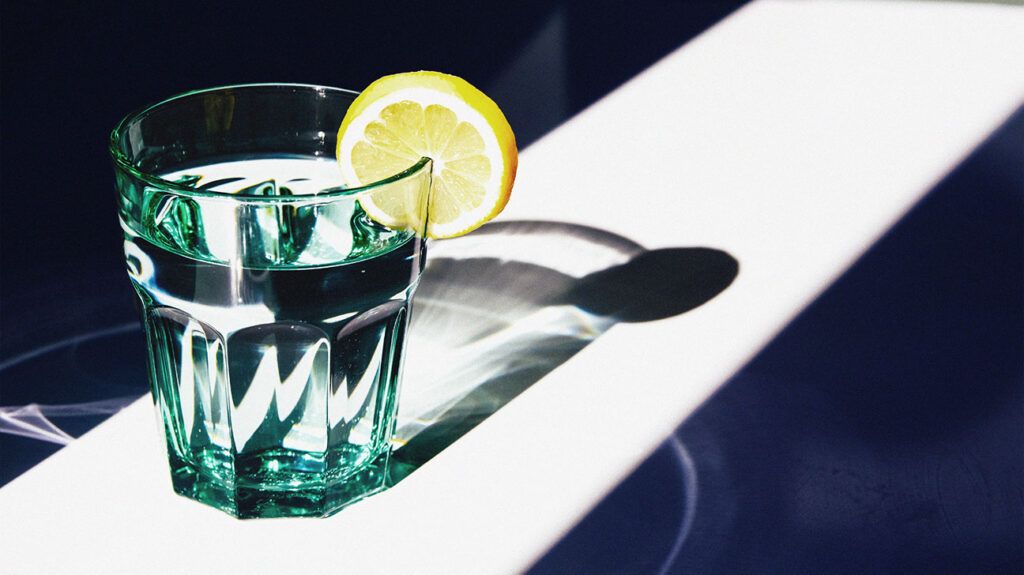A colon cleanse is a popular alternative remedy that some people claim removes waste and toxins from the colon. However, there is little scientific evidence to support colon cleansing routines, except for those that doctors prescribe.
Most of what researchers know about safe colon cleansing comes from studies that aim to find ways to improve the colonoscopy procedure rather than to boost energy levels or treat intestinal problems.
People may refer to colon cleansing methods by different names, including:
- bowel cleanses
- detoxes
- flushes
- juice diets
Most colon cleansing products supposedly help detox the colon or remove harmful substances, such as mucus and dry stool. Some people also use colon cleanses to help relieve constipation.

Using water is one of the easiest and safest ways to cleanse the colon naturally. Water moistens stool and gives it bulk, facilitating its passage through the colon.
People who are dehydrated
Everyone’s daily hydration needs vary, but it is vital to drink plenty of water throughout the day. Other beverages, including fruit juices and tea, contribute toward a person’s daily water intake.
A 2024 animal study suggests that water restriction may have an adverse effect on gut microbiota and reduce the number of certain immune cells in the colon.
Most adults can aim to drink between six and eight glasses of water daily.
Raw fruit and vegetable juices contain many elements that may help cleanse the colon, including fiber, phytochemicals (beneficial plant chemicals), and natural sugars that act as laxatives, such as sorbitol and fructose.
Proponents of juice cleanses recommend the following types of juice:
Some colon cleanse plans recommend consuming only fluids for a few days at a time to help cleanse the colon and digestive tract. However, most health authorities
Raw fruit juices can contain compounds that are hard on the kidneys. Without any treatment to kill harmful bacteria and viruses, these juices can also make people ill. They may pose significant dangers for those with medical conditions, such as diabetes.
It may be beneficial to consume fruit and vegetable juices in the form of smoothies to keep all the fiber, water, and nutrients intact. People should speak with a healthcare professional before trying a juice cleanse.
Fiber adds bulk to stool, which reduces the time it spends sitting in the colon and increases the number of bowel movements that a person has.
Many natural, whole foods are rich in fiber, including:
If people find it difficult to get enough fiber through their diet, a healthcare professional may suggest fiber supplements.
Fermented foods may contain probiotics. These bacteria
Common fermented foods that contain probiotics include:
- yogurt and Greek yogurt
- raw apple cider vinegar
- kimchi
- sauerkraut
- pickles
- miso
- kombucha
One
Some foods contain resistant starches, which are types of sugar that are difficult for the body to break down. These starches remain mostly undigested and become bulk in the stool.
The more bulk there is in the stool, the sooner the bowel is stimulated into action.
Foods containing resistant starches include:
- potatoes, sweet potatoes, and yams
- sugar beets
- sugar cane
- sweet corn
- green bananas
- beer and cider
- vegetable stems, tubers, and roots
- rice
- buckwheat and millet
- al dente pasta
- white bread
- cornflakes and muesli
According to a 2022 review, there are five types of resistant starches. Potential benefits of them may include improved insulin sensitivity and post-meal satiety. However, more research is necessary to understand the health benefits of resistant starches.
Research in a 2019 review suggests that flavones in citrus fruits, such as lemons, benefit gastrointestinal health and function. They may affect gut microbiota, intestinal inflammation, and intestinal barrier function.
Having a clean colon is crucial for certain screening tests, such as colonoscopies. Most people receiving colonoscopies have to consume a colon cleansing preparation the night before the procedure.
People should avoid consuming fruits and colored juices when preparing for a colonoscopy. However, clear fruit juices, such as lemon juice or lemonade, are acceptable.
A
People who had lemon slices and PEG had significantly higher scores on the Boston Bowel Preparation Scale. However, more people in this group also experienced a swollen stomach.
Some herbal teas may be beneficial for digestive health. A 2022 review concludes that tea polyphenols may:
- protect intestinal mucosa
- regulate intestinal flora
- promote the growth of metabolites, which can benefit intestinal health and function
There are currently no proven benefits of colon cleanses, natural or otherwise. Some cleanse regimes
However, people who promote colon cleanses may claim that they provide major health benefits, including:
- increasing energy
- removing toxins
- improving liver function
- boosting the immune system
- aiding weight loss
- relieving bloating, cramps, and gas
- reducing the risk of colon cancer
- improving mood
The National Institutes of Health highlights several possible risks of cleanses,
The Food and Drug Administration (FDA) does not regulate natural colon cleanse products.
They have also taken legal action against companies who were using unproven medical claims, such as reducing the risk of cancer or treating serious medical conditions, to promote cleanse products.
Detoxes or colon cleanses may have adverse effects in people with the following:
- colon surgery
- gastrointestinal diseases
- kidney disease
- heart disease
- diabetes
These people may need to avoid bowel cleansing methods unless a doctor performs or prescribes them.
Severely restricting calorie intake, which is often part of colon cleanses, can also be damaging to a person’s overall health. It rarely contributes to long-term weight loss or well-being.
It is beneficial to talk with a doctor before starting a colon cleanse, even one that uses natural ingredients.
If someone wishes to try a natural colon cleanse, healthcare professionals may recommend using water, herbal teas, or fruit juices.
Anyone who does try a colon cleanse should be aware of the possible side effects, such as diarrhea and weakness, and seek medical care when necessary.


